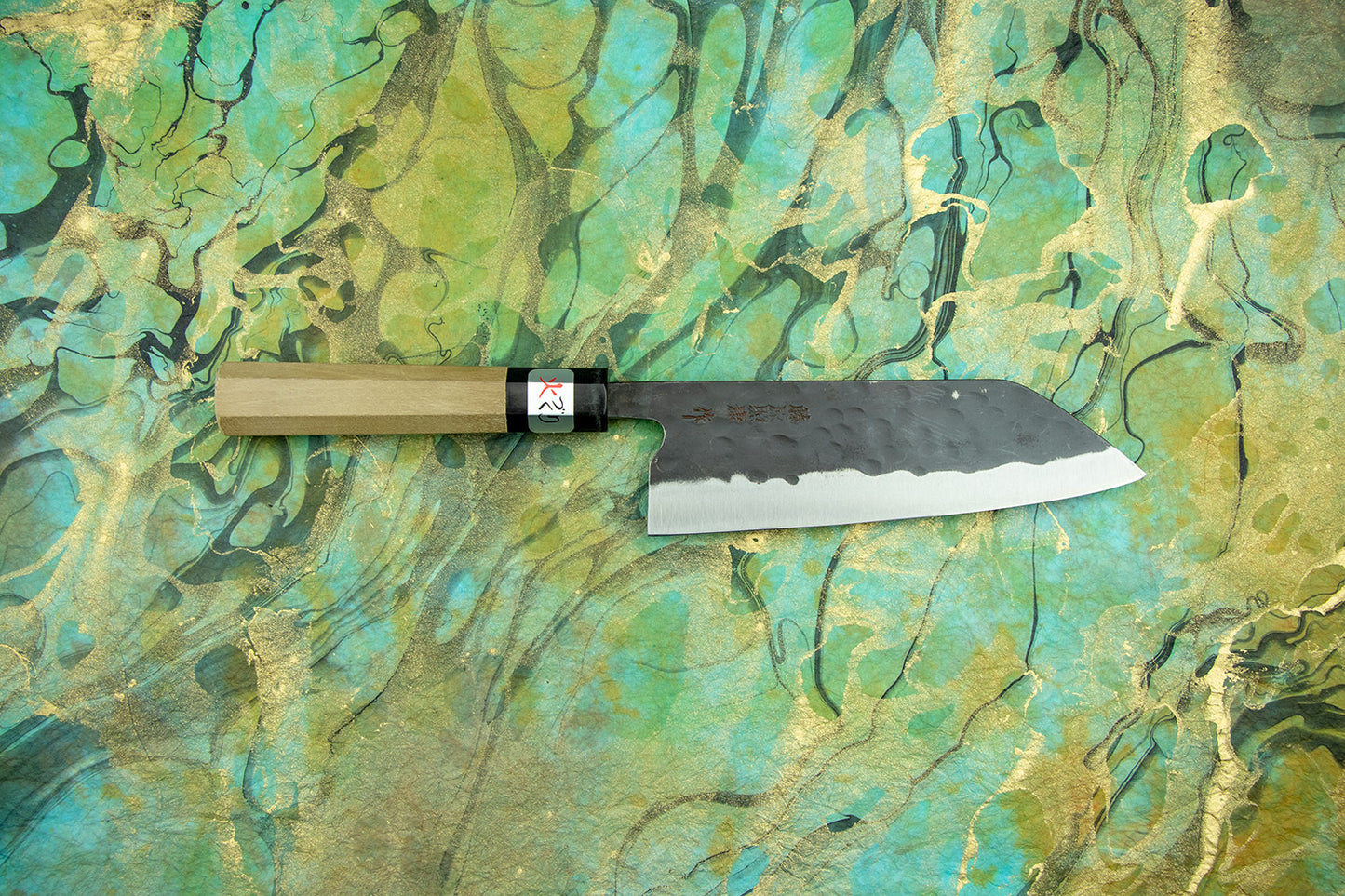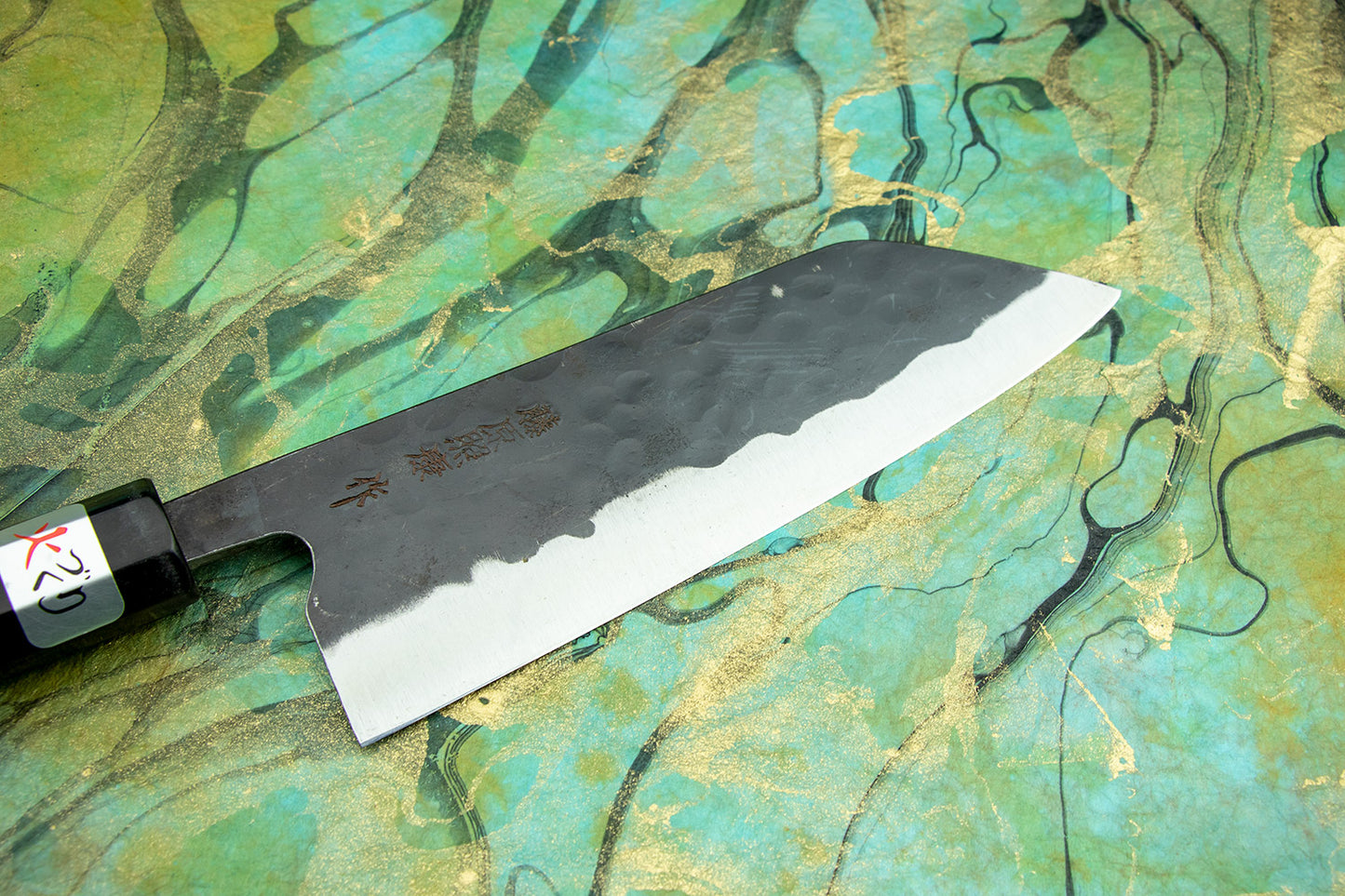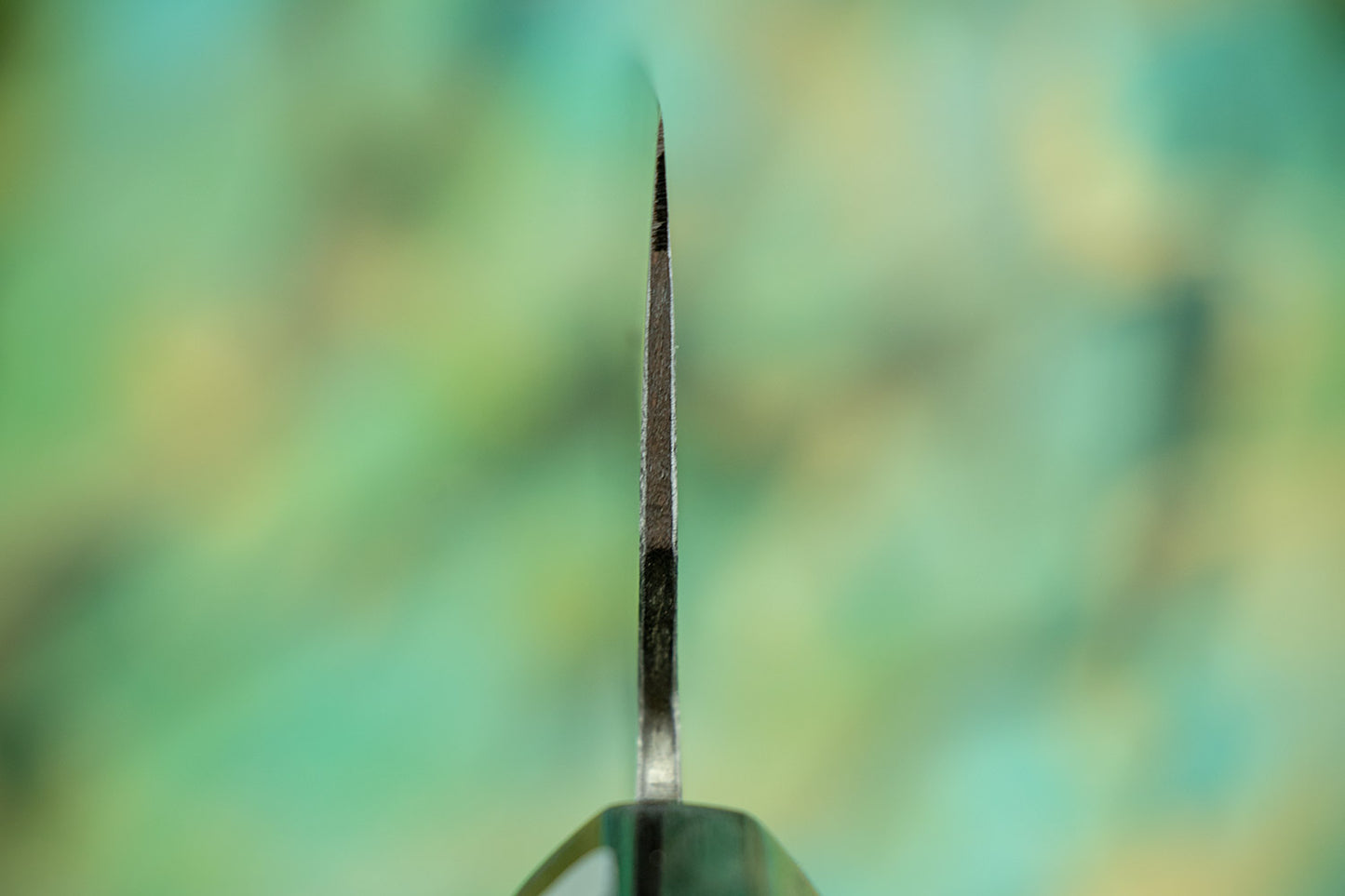Fujiwara Wa Denka Santoku 165mm
Fujiwara Wa Denka Santoku 165mm
Couldn't load pickup availability
The Denka no Hoto, which translates to ‘Treasured Family Sword,’ is made from Aogami Super, the undisputed king of knife steels. It keeps a ridiculous edge longer than almost any other Japanese knife steel and doesn’t rust nearly as easily as other high-carbon steels.
Fujiwara-san knows that chefs hold their knives by the blade in a ‘pinch-grip,’ so he created an iconic notch at the back of the knife for one’s index or middle finger to rest in. His knives are a joy to wield all day long, making them the go-to for chefs and home cooks with a taste for the finer things.
At Knifewear, saying “I own a Fujiwara” is basically a secret handshake that tells everyone you have fantastic taste in knives. The Denka line is especially revered by knife nerds and is one of my favourite kitchen knives of all time. The Fujiwara family started as blacksmiths in 1870, first forging farm tools, then swords. Today, their name is one of the most revered in the world of Japanese knives.
About the Shape - This is also a multi purpose knife, but with a slight vegetable bias. Santoku means 'Three Virtues' or 'To solve Three Problems'. The virtues or problems are slicing, dicing and mincing. Santoku is usually found in 160mm - 190mm lengths. These are more and more popular in Western kitchens due to the unique shape and smaller easy to handle size.
| Shape | Santoku |
|---|---|
| Blade Length | | |
| Steel Type |
Rust Prone ⓘ
This knife can rust, click to learn more.
|
| Rockwell Hardness | 63 - 64 |
| Edge/Bevel | |
| Handle | Wa (Japanese) Handle - Octagon Magnolia Water Buffalo Horn Collar |
| Knifeline | Fujiwara Denka no Hoto |
| Blacksmith | Teruyasu Fujiwara |
| Made in | Tokyo, Japan |
Knife Care
Knife Care
Shipping and Returns
Shipping and Returns
We aim to ship your order within 1 business day at Knifewear, if there is a hold up, we'll aim to let you know and give you a timeline.
We offer $3 shipping on orders over $100* anywhere in Canada and $200* to customers in the USA. We ship worldwide, and offer up to the minute rates from our shipping partner DHL.
*Konro Grills and some other larger items are excluded from the free shipping offer.
How do I make a return on an online order?
No worries, we've got you sorted. Head over to https://knifewear.com/returns and follow the prompts.
Can I pick up my order Curbside / At the store?
Absolutely, as long as all the items you are looking for are in stock at the location you want to pickup from, you'll be able to select that at the checkout. If one or more items aren't at your preferred location we are happy to ship it to you.
Request Additional Info
Request Additional Info






